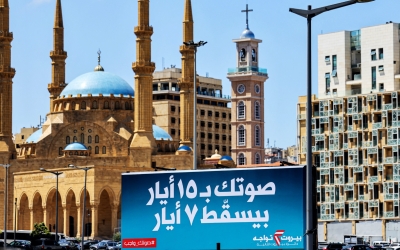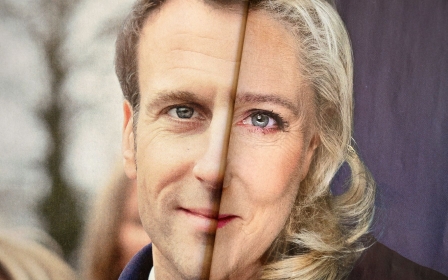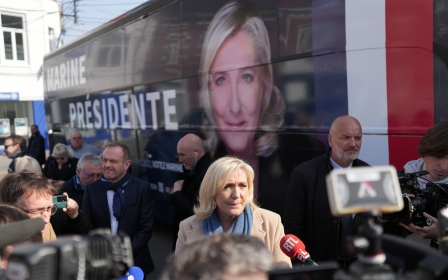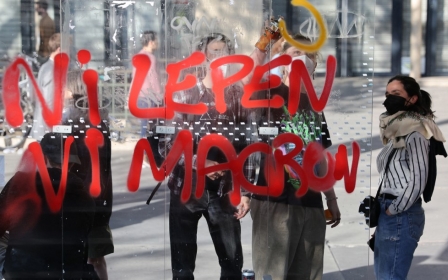France elections 2022: Lebanese fear growth of far-right influence in Paris
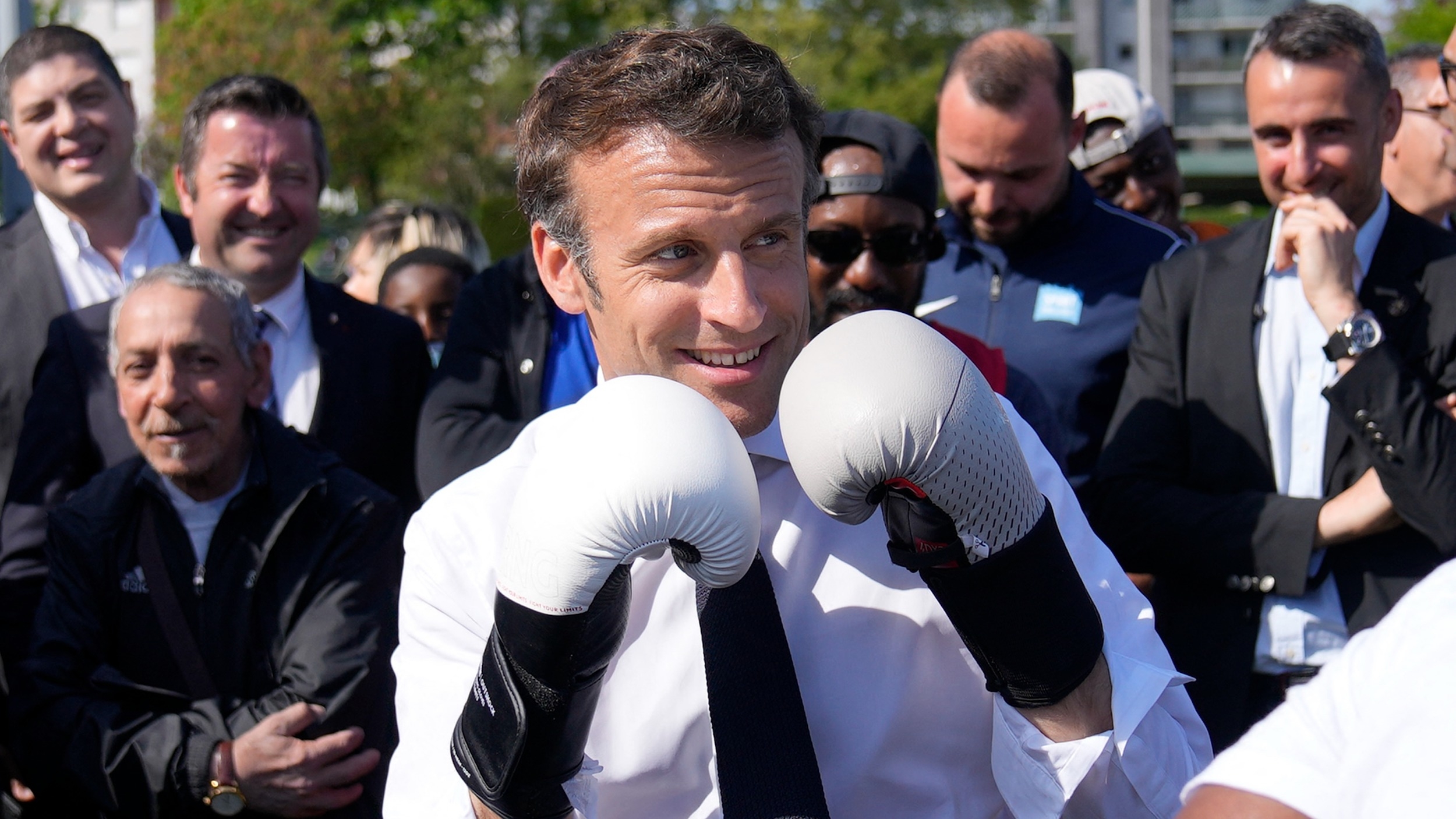
To the Lebanese, French politics have traditionally been a source of debate. Lebanon is also undoubtedly the one Middle East country most invested in France’s internal political battles.
Historical ties between the two countries are among many reasons for their enduring kinship, which took root in the first half of the 19th century, before the fall of the Ottoman Empire, followed by years of French colonisation of Lebanon. Today, French is still spoken by about 50 percent of the Lebanese population.
Over time, a number of Lebanese have also acquired French nationality. Out of the 19,000 people in Lebanon eligible to vote in France’s first round of the presidential election, one in eight are dual nationals.
But this year, many Lebanese have not shown much interest in the current events in France. In fact, international politics are far from being a major concern for ordinary Lebanese, who are embroiled in their own country’s multi-dimensional crises, to which no one can seem to envisage an end.
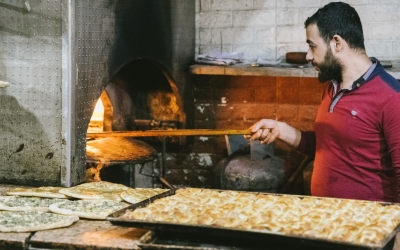
“To be well-informed, you need to be able to access information, to afford an internet connection or even just have electricity. And to be curious about the world, you need to be in a good place yourself. This is not the case for people here,” said Mouna, a 38-year-old from Beirut who’s deeply affected by Lebanon’s crises.
With three quarters of the Lebanese population living in poverty, and the Lebanese pound having lost 90 percent of its value, Deputy Prime Minister Saadeh Chami in early April announced the bankruptcy of the state and the central bank.
Chami, who’s in charge of Beirut’s dealings with the International Monetary Fund (IMF), tried to reassure the nation by adding that negotiations were underway with the IMF to sign a preliminary deal on a package to help Lebanon exit its deep financial crisis.
This time around, instead of following the elections in France, the Lebanese are more invested in what’s taking place in their own country.
“Obviously, I care about the elections in France, but I can honestly say I have more on my mind with the upcoming elections here in Lebanon. We need change,” said Mouna, referring to the vote on 15 May.
France still matters
Despite their country’s prospects continuing on a downward spiral, some Lebanese say they still try to stay on top of international events, in particular the stakes at play in France.
“The Lebanese follow the news in France, particularly general elections, for one very simple reason: they know that the profile of the [French] president will have a decisive impact on the situation in their own country,” Michel Touma, co-founder and managing editor at the new Lebanese newspaper Ici Beyrouth, told MEE.
'[The Lebanese] know that the profile of the [French] president will have a decisive impact on the situation in their own country'
- Michel Touma, Ici Beyrouth newspaper
Touma’s view is seconded by Wadih al-Asmar, chairman of the Lebanese Centre for Human Rights (CLDH). He argued that given France’s strong influence here, a new face in the Elysee Palace would have a significant impact on Lebanon.
“It’s one of the reasons why this presidential election has been closely watched, despite whatever else that might be happening,” he told MEE.
Lebanon still occupies a significant place for the French candidates, added the French-Lebanese national.
“During the previous elections, in 2017, the great majority of them came to Lebanon during their campaign, which is evidence of France’s interest in Lebanon. Nevertheless, this year, for a variety of reasons, this hasn’t happened,” said al-Asmar.
Far-right’s momentum
Some in Lebanon have voiced concerns following the first round of voting in France, in which incumbent President Emmanuel Macron came out on top with 27.84 percent of the votes, ahead of Marine Le Pen, the National Rally party (RN) candidate who came second with 23.15 percent.
French voters will head to the polls on 24 April, 2022 for the second round of France's presidential election.
This year’s French presidential campaigns have been centred on the economy, especially the cost of living crisis in the country, but it has also been marred by divisive rhetoric on immigration control.
'It’s been Islam, immigration and security on repeat'
- Florient Zwein, French-Lebanese journalist
The campaigns in France have also left their marks in Lebanon. Most notably because the most crucial issues facing society have barely been touched upon, pushed out by a surge in identity politics characterised by burgeoning hate speech.
“It’s been Islam, immigration and security on repeat. The real problems, the issues that interested young people, didn’t get any room in the debate,” Florient Zwein, a French-Lebanese photo journalist who lives in Beirut, told MEE.
“As in France, people were more drawn to focus on controversial topics than the truly important, significant ones.”
To Wadih al-Asmar, this trajectory was “really worrying, possibly even dangerous”.
“Instead of engaging the far-right on critical issues, such as social equality, climate change and ecology, the political parties cross to fight them on their own ground.
“All the political parties, starting with En Marche [Macron’s party], should reflect on how they can turn the debate away from fear and back to real social projects,” he said.
‘Intellectual decline’
An "intellectual decline" in society has contributed to the current climate, said Touma, pointing out that this phenomenon isn’t just confined to France.
“There’s a generalised decline, on a worldwide scale, in the tone of political debate. This has been spectacular in the US particularly, [but] it’s global, almost universal and manifest across intellectual, cultural and artistic spheres.”
“In Lebanon too, there has been a vertiginous drop which can be observed across the board,” he added.
Consequently, Lebanon has not been spared from the influence of Eric Zemmour, a far-right figure often dubbed "France's Donald Trump".
“This can partly be explained by the fact that Zemmour made many references to Lebanon, albeit negative, but also because there are right-wingers here, mainly Christian, who edge towards this type of discourse, which is not dissimilar to that common among Christian militia during the civil war,” said Anthony Samrani, deputy editor-in-chief of French-speaking newspaper L’Orient-Le Jour.
The journalist, in an editorial published the day after France’s first round results and titled ‘La France en miettes’ ["France in pieces’], wrote about how the public debate there was "poisoned by the venom of conspiracy theories".
The debate was suffering from “a major surge in populism, in particular far-right populism, feeding off the feeling of decline, real or supposed, and the demographic evolutions, again real or imagined, which traverse and modify these societies,” he said in an editorial piece.
Hezbollah's role
France’s right-wing parties have almost always won the votes of large swathes of the electorate in Lebanon.
Jacques Chirac in his time got nearly 80 percent of the vote, and in 2017 Francois Fillon secured 61 percent of votes in the first round.
So it came as no surprise that Emmanuel Macron should emerge as the winner in these elections, way ahead of Marine Le Pen, who barely scraped 11 percent of the votes from dual nationals.
However, the exceptionally high abstention rate - 62.32 percent - is particularly revealing of many French-Lebanese’s ambivalence towards Macron.
Back in 2020, punctuated by a highly publicised visit to Beirut on the day after the devastating explosion in the city’s port, Macron’s initiatives to help Lebanon get back on its feet eventually came to nothing.
As a result, many Lebanese "no longer seem to expect much from him, while he fails to heed the demands of civil society", explained Zwein.
The Lebanese are also divided on this failure of promises, Samrani said.
“There are two discernible perspectives. Firstly, there are those who highlight the time and energy [Macron] has invested in saving Lebanon from ruin.
“But also secondly, there is the view voiced by many Lebanese that he has helped re-legitimise the existing government [of Lebanon],” he said, referring to the anti-government demonstrations of October 2019.
The sensitive issue of the inclusion of Hezbollah in the political equation has also been a source of discord.
The Shia group is one of the largest political factions in Lebanon, and also maintains a well-armed militia with a cache of tens of thousands of missiles. The United States has long targeted Hezbollah officials and their allies with sanctions.
A significant number of Lebanese hold the party directly responsible for France’s failure.
“Macron didn’t fail through a lack of determination or interest, but rather because Hezbollah tricked him.
“For Hezbollah, whatever they might say, dialoguing with France goes against the grain, quite simply because the party opposes any foreign or even Lebanese initiative that could stabilise the country,” said Touma.
While many supporters of the "Party of God" understood Macron’s desire for dialogue with their leaders, the general secretary of Hezbollah has also admonished the French president for his "condescending tone" when he accused the whole of the Lebanese political class of "collective treason".
A hashtag "Macron know your limits" even appeared on the Twitter feeds of Hezbollah sympathisers.
Potential political upset
Nevertheless, the second round of France’s presidential elections will be followed by many in Lebanon, and for good reasons.
“There’s a lot of anxiety about a possible political upset, with an incoming party less favourable to Lebanon and closer to Russia or China,” says al-Asmar.
'There’s a lot of anxiety about a possible political upset, with an incoming party less favourable to Lebanon and closer to Russia or China'
- Wadih al-Asmar
In fact, a victory for Marine Le Pen in the second round could really shuffle the deck. Le Pen, who has never concealed her support for Damascus and Moscow - like a large swathe of the French far-right - could easily contribute to France changing sides if she did come to be elected.
“There’s a convergence of interests between all these parties. In the current crisis, Lebanon needs support from its allies, primarily France.
“Hezbollah, for its part, is certainly hoping that Marine Le Pen triumphs, given her stance on regional conflicts,” Touma said.
If Hezbollah has participated in fighting in neighbouring Syria, alongside the Moscow-supported troops of Bashar al-Assad, might this point of convergence, however shifting, bring Marine Le Pen closer to the "Party of God"?
“Both sides, Hezbollah and Marine Le Pen, are capable of some pretty impressive ideological contortions, so a political ploy such as this is not out of the question, where Damascus or Moscow are concerned.
“However, there’s an ongoing dialogue, unbroken for some time now, between the party and the French government, a situation in which Hezbollah is not entirely uncomfortable,” Samrani explained.
The newspaper Al-Akhbar, reputedly close to the Shia party, printed a sober yet realistic viewpoint the day after the first round: “A victory by Le Pen, who is sympathetic to Russia, could destabilise the western alliance in its war against Moscow, reversing the role of Paris as a major European power, and could pave the way for leaders of other western countries to squabble with the US and Nato.”
However, any collusion by Marine Le Pen with Hezbollah risks being very badly perceived by her electorate.
It’s no coincidence that she refused to meet their representatives in 2017, and was quoted in L’Orient-Le Jour as saying she had no "particular relationship" with them, preferring at the same time to promote her relationship with the Lebanese President Michel Aoun, himself allied with Hezbollah.
The Lebanese people are aware of one reality: Lebanon has in some ways become an eye of the international cyclone.
Hence in the case of the French elections, whatever strategies the parties have deployed, and whatever ends up happening in Paris will inevitably have repercussions in Lebanon.
This article is a translation of a story originally published on Middle East Eye’s French website.
Middle East Eye delivers independent and unrivalled coverage and analysis of the Middle East, North Africa and beyond. To learn more about republishing this content and the associated fees, please fill out this form. More about MEE can be found here.



